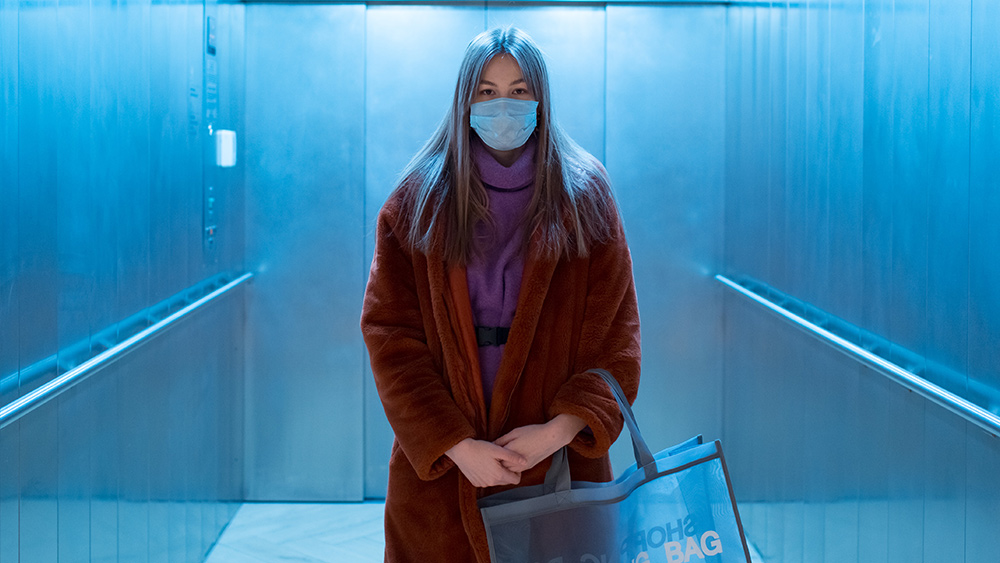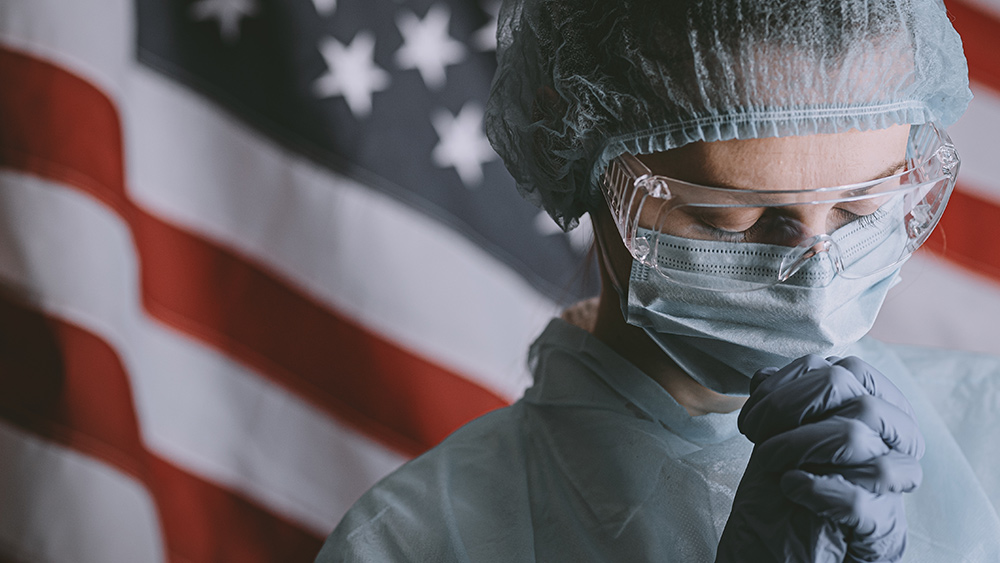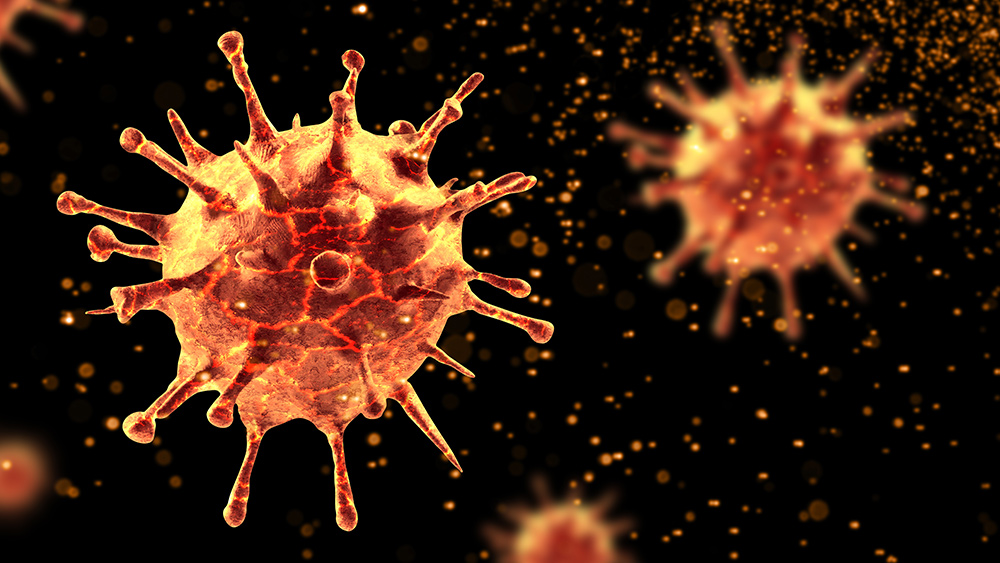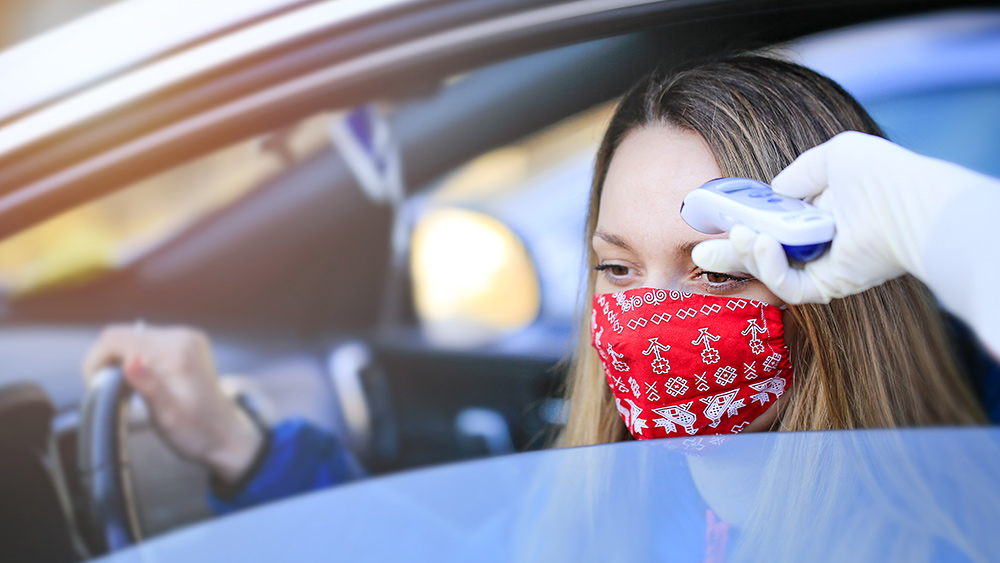Coronavirus study warning: Speaking sprays more saliva droplets in the air than coughing
04/09/2020 / By Isabelle Z.

U.S. government scientists have said that the tiny droplets of saliva people spray into the air when they speak could be enough to spread deadly coronavirus.
It’s an unsettling finding but an important one when it comes to keeping the virus under control around the world.
Researchers from the National Institute of Health made the discovery using laser imaging with high-speed videography to demonstrate how thousands of droplets far too tiny for the naked eye to detect are emitted into the air during normal speech. This is even true while uttering brief phrases like “stay healthy,” which saw 360 saliva droplets released in the study.
Although the scientists couldn’t analyze the droplets to see if they carry coronavirus particles, their size was large enough to be carrying a range of respiratory pathogens, including those of influenza and measles. The scientists added that wearing a damp, homemade cloth face mask significantly reduced the excretion of droplets, and none of the spoken words created a droplet rise above the background under such conditions.
In fact, they stated that speaking can produce more of these droplets than the seemingly more obvious transmission mode of coughing.
These saliva droplets could well pose a risk to other people if the speaker is infected with the virus. And while the study has yet to be peer-reviewed, it could have major implications when it comes to stemming the pandemic.
Face masks take on new importance
For example, wearing masks or cloth mouth coverings in public could be more widely recommended to help decrease transmission of the disease. It would also reinforce the notion of social distancing and the important role it plays in keeping people safe from the illness.
It’s a timely finding as the debate rages on over whether people who are healthy should be wearing face masks when they go out in public. The CDC recently called for people to put on cloth face covers while visiting places where keeping a physical distance from others proves challenging, such as in grocery stores and pharmacies.
The CDC based its decision, at least in part, on recent research showing that a large percentage of COVID-19 cases are being acquired from individuals who do not show any symptoms of the disease.
The World Health Organization, in contrast, recently issued updated guidance on face masks, saying there wasn’t any evidence that wearing one in public would prevent people from catching respiratory infections like coronavirus.
Although the WHO acknowledges that a mask can reduce the number of droplets a person who is infected but doesn’t realize it may spray into the air, they maintain that wearing such a mask in public isn’t likely to completely protect the person wearing it from viruses because the virus can potentially penetrate through the masks, and it can also enter a person’s body through their eyes. That stance may change again as more findings like the current one come to light.
Other research has indicated that the virus could remain suspended in the air for several hours, which means that theoretically, a person could acquire it simply by breathing in an area where an infected person had passed through. However, experts don’t believe this is a major means of transmission.
You can make your own cloth face coverings if you must go out
If you choose to fashion your own cloth face coverings, the CDC is offering guides to the public on its website. Be sure to wash it regularly, preferably in a washing machine, and remove it safely without touching your nose, eyes or mouth. After you’ve taken your face covering off, wash your hands right away.
Whether you’re wearing a mask or not, it’s never a good idea for a person who is experiencing coronavirus symptoms to have close contact with other people. Stay home if you’re not feeling well to avoid potentially spreading the disease, and seek medical care if you develop serious symptoms like breathing trouble, cough or fever. If everyone follows this advice, it could go a long way toward helping put an end to this pandemic.
Sources for this article include:
Tagged Under: airborne, coronavirus, covid-19, droplets, face masks, germ spread, infections, masks, outbeak, outbreak, pandemic, prevention, Public Health, research, saliva, speaking, transmission


















